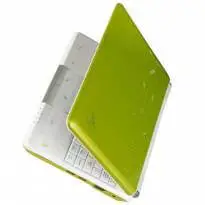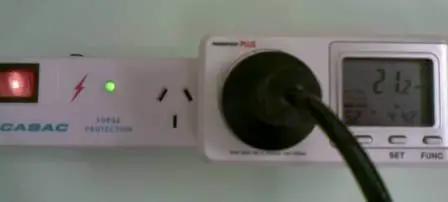

Measure Computer Power Consumption Instructions
Accurate power consumption can be acquired using a power point energy meter.
These devices cost approximately $30 and can show current power use, power use over time, cost per hour and carbon costs.
Fill in the values for your computer or laptop or netbook in the first two tables.
Press the Get Results button
See the computer power consumption in the third table.
Computer Power Use Definitions
Standby Power - Computer plugged into mains power but off.
Powered Up - Computer on but idle.
Full Power Use - Computer actively in use.
Computer on but screens and drives off - Computer power management has been enabled and computer is idle over 15 minutes.
Computer in Sleep or Hiberbate mode - Computer power management has been enabled and computer is idle over 30 minutes.
Note: Laptop usage using batteries should be included in operating hours.
If Computer Power Management is not enabled then put zero hours for Computer on but screen and drives off and Computer in Sleep or Hiberbate mode.
Computer Power Management CPM defined
CPM is a way to save energy consumption of a computer using only configuration changes. Suggestions for energy saving settings are:
- Turn off screens after 15 minutes of inactivity. This is configured in the operating system to operate automatically.
- Turn off hard drives after 15 minutes of inactivity This is configured in the operating system to operate automatically.
- Make computer go to sleep or hibernation after 30 minutes of inactivity. This is configured in the operating system to operate automatically.
- Enable in the computer BIOS: ACPI, S3 Sleep Mode, Intel Speedstep / AMD Cool n Quiet
Up to an extra 38% in electrical consumption and running costs can be saved with the above settings.
Other Computer Power Consumption Suggestions
- Choose Energy Star 5 rated computers.
- For Desktops choose 80 Plus standard power supplies.
- Turn of computer peripherals at the wall when not in use or use a USB controlled power board.
- PC energy use in desending order is desktop, laptop, netbook, thin client, tablet, smartphone.
- Consider the use of thin clients and virtual machines on the next hardware refresh.
- Consider cloud computing services instead of new local hardware.
Home | Computer Efficiency Section
Desktop Computer System Selection Guide | Laptop Computer System Selection Guide | Chromebook Computer System Selection Guide
Home | Home | Home
Energy Calculators | Efficiency Ebook | PC Energy Yearly Costs Calculator




